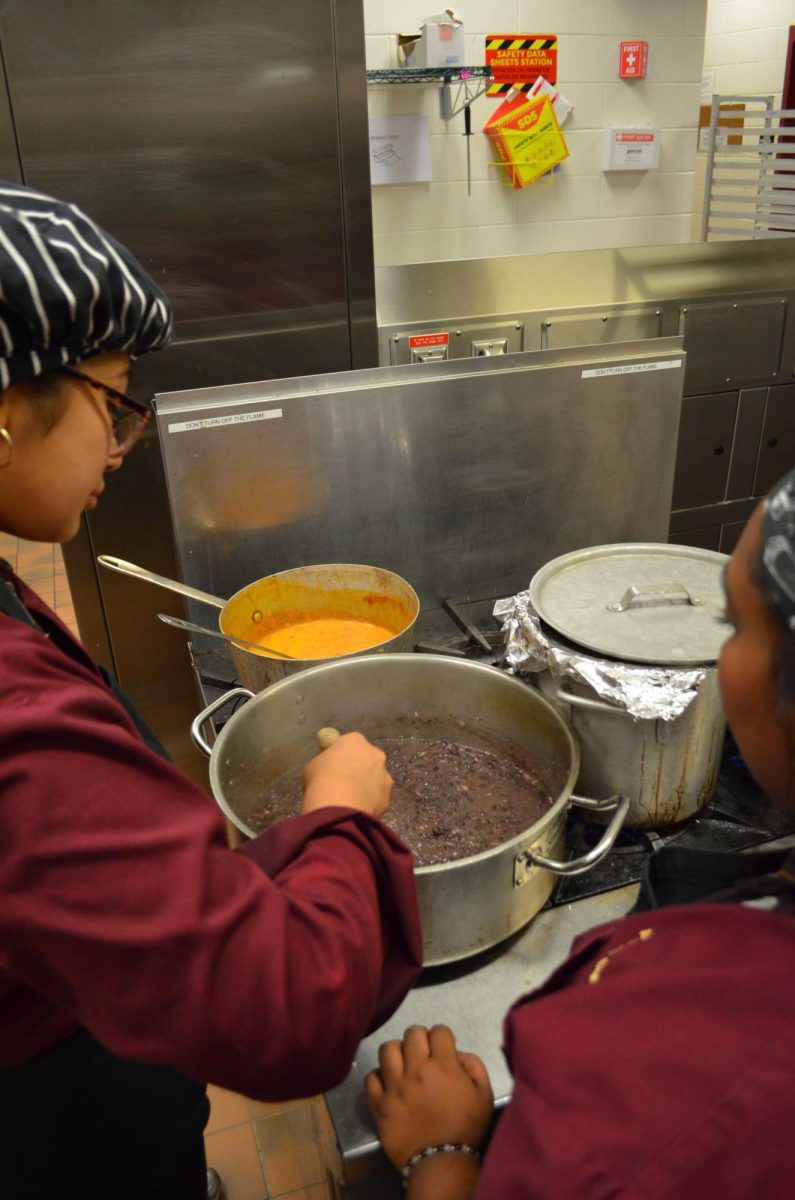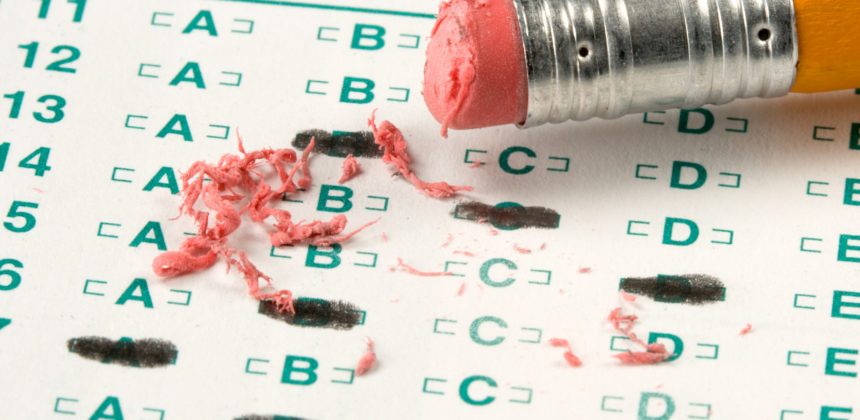Are “Big” Tests Necessary?
Image from Grade Power Learning.
January 26, 2021
There comes a time in school when students have to take tests, sometimes long and arduous. Of course, tests vary. Some of them are short and sweet and leave students feeling great about themselves, but others are long and stressful and leave a student feeling very defeated though they gave it their best effort.
While students often hope to escape such stress and pressure and wish for large tests to vanish from courses and curriculums, they continue to take them against their will, trudging through each and every one.
Those who would like to see testing vanish, question why they are taking big tests that are saturated with many multiple-choice questions and written responses. They wonder why they have to deal with tests that bring such pressure and exhaustion, and question the benefits that such testing will have in their education.
So what actually constitutes a “big” test? For students, big tests are those that have a substantial impact on their grades such as large unit tests or county exams, required state testing such as HSA, MSA, and PARCC, and, of course, college entry exams – the SAT and ACT. In an article by PsychologyToday’s Cody Kommers, he states, “Standardized tests are supposed to be a general measure of intelligence” and “are constructed to test students on what they should know.” Moreover, students are tested to reveal their capabilities and skills they have learned over time in school.
In an article by Grade Power Learning, an online learning and test prep site, they explain that standardized testing “is the best way to accurately evaluate students” and “makes it possible to compare individual students based on their performance.” Additionally, ETS, the world’s largest private testing organization, sees testing as a way to measure student performance and preparedness in a variety of areas. The ETS website notes, “standardized tests allow the comparison of test takers from different areas of the state, the country and the world. What a test can do depends on whether it is well-designed for a particular purpose. Well-designed tests can provide results that can be used in a variety of meaningful ways….” It is clear that those who support big testing, like ETS, see testing as the means of readiness for the future in that they help acquire several skills for a student.
However, for those who oppose testing or who think it should be limited, their feelings run deep. When dealing with tests, there can be many factors that inaccurately demonstrate a student’s progress or capability. A blogger for ASCD, an international nonprofit education association, reports that testing is problematic “Because students know that test scores may affect their future lives, they do whatever they can to pass them, including cheating and taking performance drugs (e.g. psychostimulants like Ritalin ‘borrowed’ from their friends).” This is important to note as it emphasizes the stress that big tests create and the extreme levels that some students may turn to including ill-conceived tactics in order to get a good mark.
Students feel the burden of testing, which is why so many are against it. Sharon Kuma, senior from Paint Branch High School says, “Big tests are not necessary because judging a student on one test doesn’t accurately show their abilities. There could be many factors that could have influenced how the student performed on that day.” It can be very overwhelming to have your knowledge dependent on how well you score on a test. It is perhaps more efficient to have a record of your successes throughout the year rather than crammed in an anxiety-filled test.
Another student, Rim Petros, a freshman from Paint Branch says, “A student’s academic success should not be judged by a big test but instead by keeping track of their performance throughout the school year.”
Big standardized tests will continue to be a debated topic in schools. There are some who are in favor of the implementation of these big tests and see them as a fair testing of general knowledge that will help train the student for their future, while others who are completely against them argue that it doesn’t accurately measure skill due to many factors that could affect performance. No matter what is used to measure student success or preparedness, students should continue to work hard in improving their academic performance. Strive to do better each day and never give up even when you feel like that’s the only option. School will definitely be filled with adversaries and stresses, but in all of this perseverance is key.













































